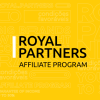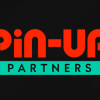K
Kennysplash
Guest
You may be wondering how possible it is to make money from the popular chatting app. You can make money on it by advertising and selling other people's goods and services, then you get a percentage from every sales you make.
But you first have to build up your friends and status viewers list so that you can reach more people.
This is am effective way of making money on WhatsApp.
But you first have to build up your friends and status viewers list so that you can reach more people.
This is am effective way of making money on WhatsApp.


























































